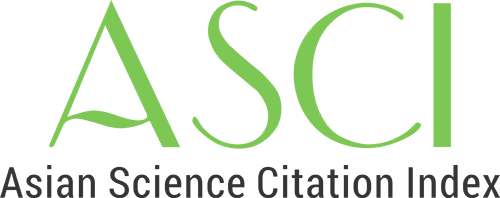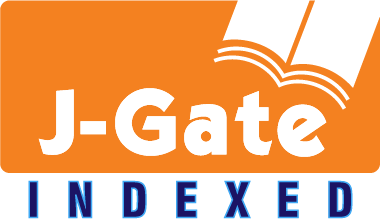EXAMINING THE IMPACT OF INDUSTRY 4.0 ON EDUCATION
DOI:
https://doi.org/10.26809/joa.5.013Keywords:
Industry 4.0, The Fourth Industrial Revolution, Education, Lifelong LearningAbstract
Industry 4.0 is the concept that has been on the agenda for nearly a decade; but other than those closely involved in the issue, it is a little-known concept yet. Industry 4.0, which expresses the Fourth Industrial Revolution, promises to make production with smart factories and digital Technologies with almost no need for labor. Nowadays, when the technology develops quite fast, people's daily life styles change. In occupational groups where technology use is intense, there are differentiations in the way people express their feelings not only in business or academic life but also in private life.
In order to capture Industry 4.0, it is necessary to design, develop and produce technology in every field. However, in addition to production, it is important to train qualified labor force who can use this new technology. Taking into account that daily ordinary work will be undertaken by artificial intelligence initially, it is better to understand that education is not limited to school for individuals who want to continue to play a role in economic life, and the importance of continuing to learn in different fields for individuals who continue to study. Exactly at this point, the education sector appears as an area that needs to be studied in detail under Industry 4.0. Within the scope of Industry 4.0, which is also very important besides the knowledge, an education policy which gives importance to creative thought and which is based on lifelong learning should be designed. In this study, it is aimed to discuss the effects and consequences of Industry 4.0 in the education sector. Fictional analysis and case study were used as the method of study.
Downloads
References
ATALAY, Y., Çeliktaş, M.S., Özgel, S. and Sonlu, G. (2015). Endüstriyel Devrimin Son Sürümünde Mühendisliğin Yol Haritası. TMMOB Makine Mühendisleri Odası Mühendis ve Makine Dergisi. (TMMOB Chamber of Mechanical Engineers Journal of Engineers and Machinery). 56(662). pp. 24-24.
BALAY, R. (2004). Küreselleşme, Bilgi Toplumu ve Eğitim. Ankara Üniversitesi Eğitim Bilimleri Fakültesi Dergisi. (Ankara University Journal of the Faculty of Educational Sciences) 37(2). pp. 61-82.
BCG and TÜSİAD, (2016). Türkiye’nin Küresel Rekabetçiliği İçin Bir Gereklilik Olarak Sanayi 4.0: Gelişmekte Olan Ekonomi Perspektifi. İstanbul: TÜSİAD.
Ege Bölgesi Sanayi Odası, (2015). Sanayi 4.0: Uyum Sağlamayan Kaybedecek! İzmir: Ege Bölgesi Sanayi Odası.
EKOIQ, (2014). “Akıllı Yeni Dünya Dördüncü Sanayi Devrimi Endüstri 4.0: Bilişimin Endüstriyle Buluştuğu Yer Türkiye “Akıllı” Üretime Hazır mı? EKOIQ Dergisi Özel Eki. (EKOIQ Journal Special Issue) D. December, pp. 1-17.
FREDERICK, D. E., (2016). Libraries, Data and the Fourth Industrial Revolution (Data Deluge Column). Library Hi Tech News. 33(5). ss. 9-12.
KAGERMANN, H.; HELBIG, J. ve WAHLSTER, W. (2013). “Recommendations for Implementing the Strategic Initiative Industrie 4.0”, Final report fort he Industrie 4.0 Working Group, Ed: Ariane Hellinger ve Veronika Stumpf, acatech-National Academy of Science and Engineering. April. Ss. 13-78.
OECD, (2016). International Student Evaluation Program PISA 2015 National Report. http://pisa.meb.gov.tr/wp-content/uploads/2014/11/PISA2015_UlusalRapor.pdf Date of Access: 18.12.2018
ÖZDEMİR, S.M. (2011). Toplumsal Değişme ve Küreselleşme Bağlamında Eğitim ve Eğitim Programları: Kavramsal Bir Çözümleme. Ahi Evran Üniversitesi İletişim Fakültesi Dergisi. (Ahi Evran University Journal of the Faculty of Communication).12(1). pp. 85-110.
ÖZKAN, H., (2009). Bilgi Toplumu Eğitim Programları. Süleyman Demirel Üniversitesi Sosyal Bilimler Enstitüsü Dergisi. (Suleyman Demirel University Journal of the Institute of Social Sciences). 2(10). pp. 113-132.
Resmi Gazete, (1973). Milli Eğitim Temel Kanunu. 1739/14574.
TOFFLER, A. (2008). Üçüncü Dalga (translator: Selim Yeniçeri). 1. Baskı. İstanbul: Koridor Publishing.
Downloads
Published
How to Cite
Issue
Section
License
Copyright (c) 2020 Holistence Publications

This work is licensed under a Creative Commons Attribution 4.0 International License.
When the article is accepted for publication in the Journal of Awareness, authors transfer all copyright in the article to the Rating Academy Ar-Ge Yazılım Yayıncılık Eğitim Danışmanlık ve Organizasyon Ticaret Ltd. Şti.The authors reserve all proprietary right other than copyright, such as patent rights.
Everyone who is listed as an author in this article should have made a substantial, direct, intellectual contribution to the work and should take public responsibility for it.
This paper contains works that have not previously published or not under consideration for publication in other journals.











